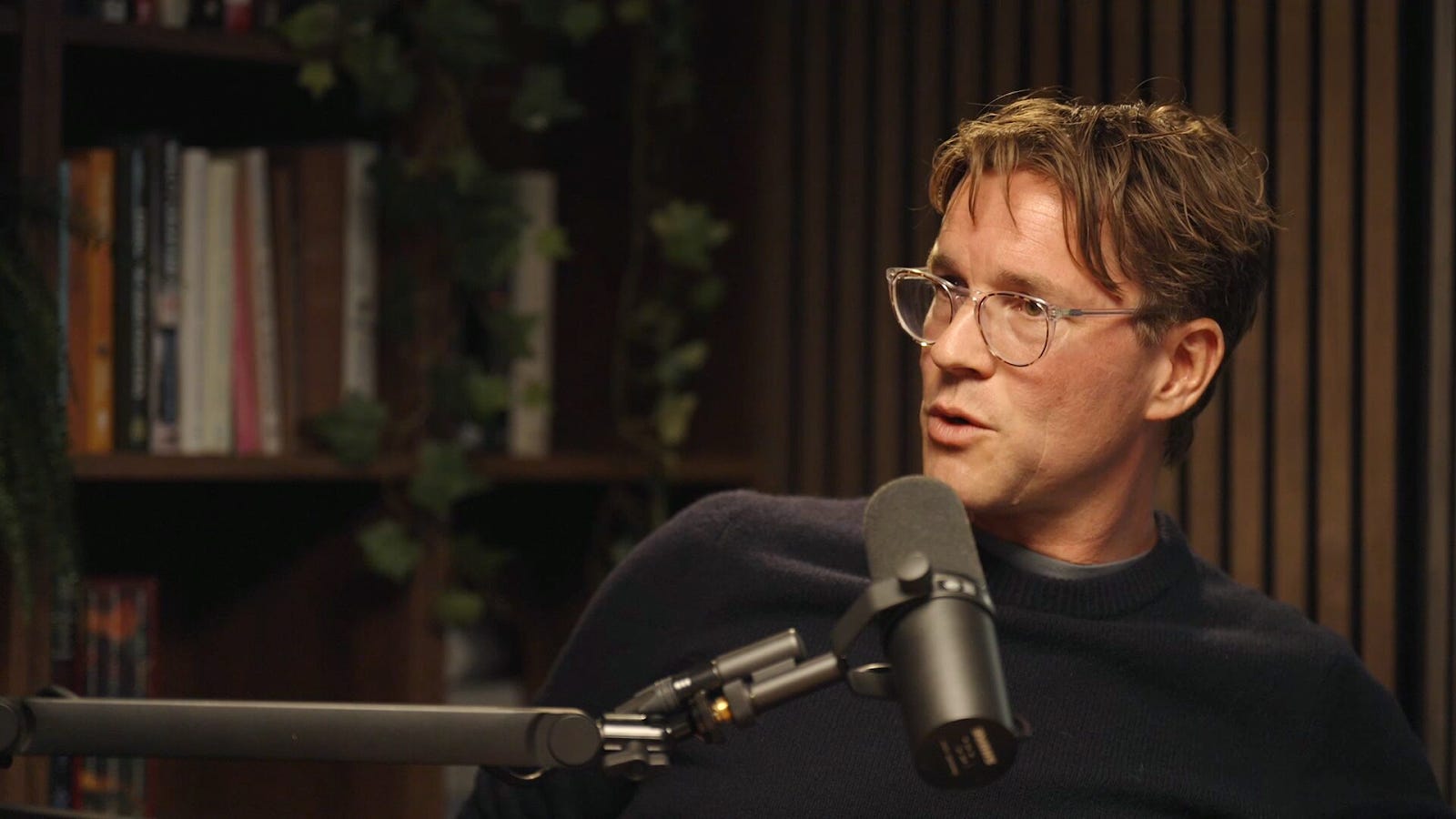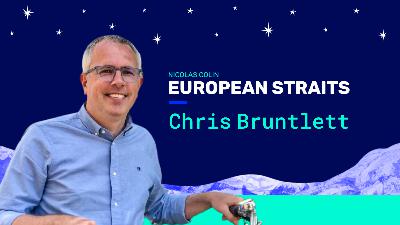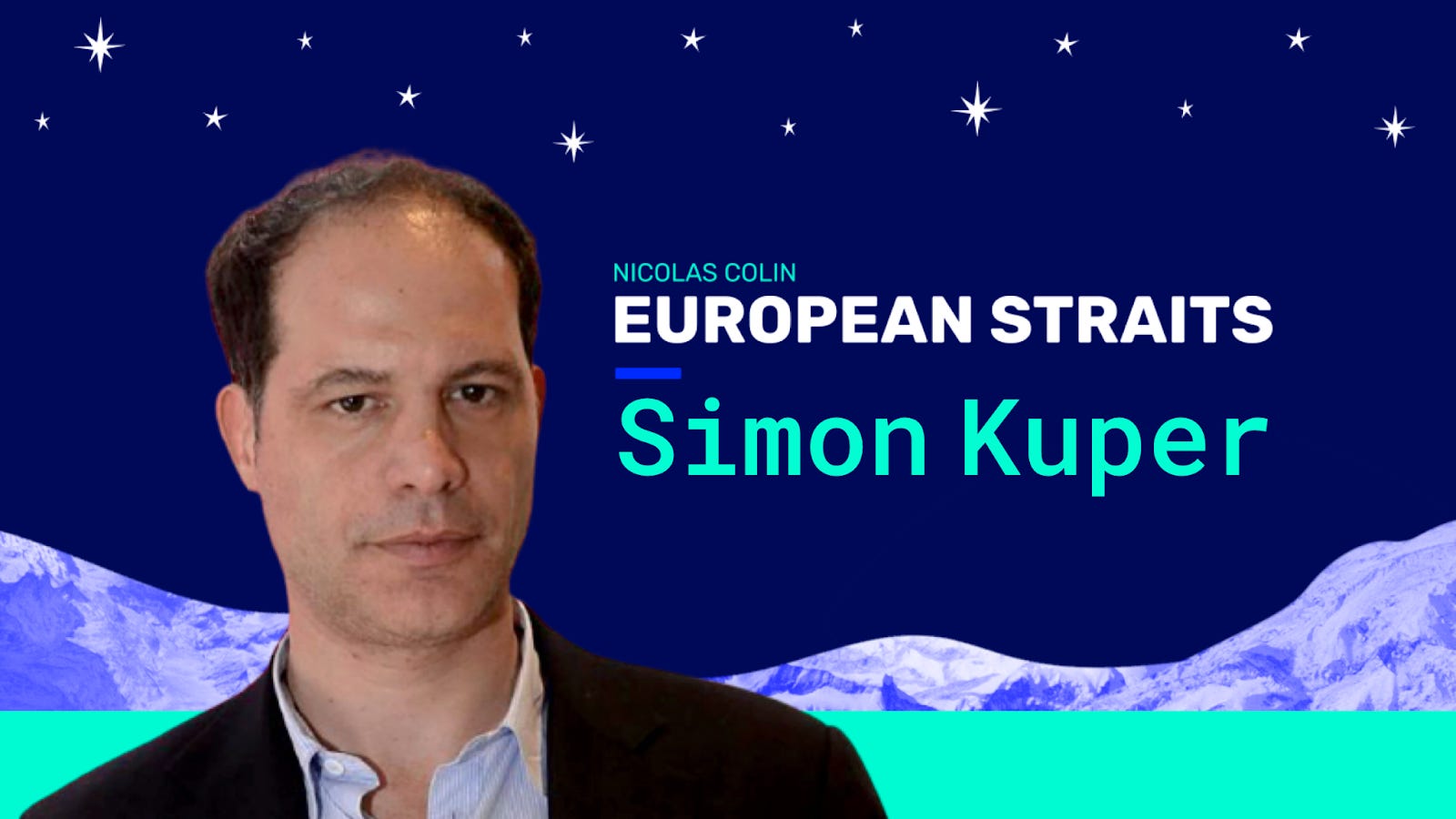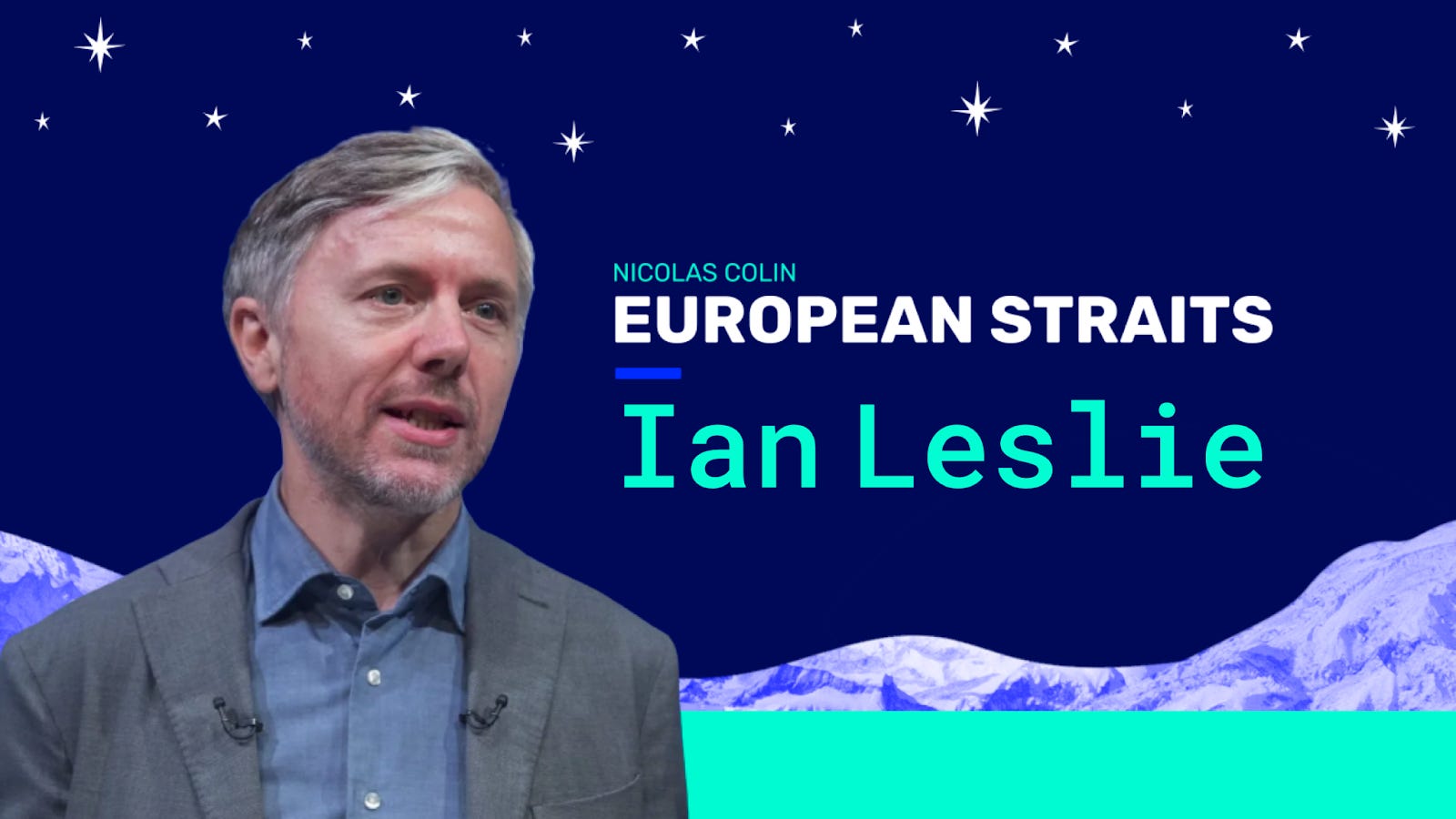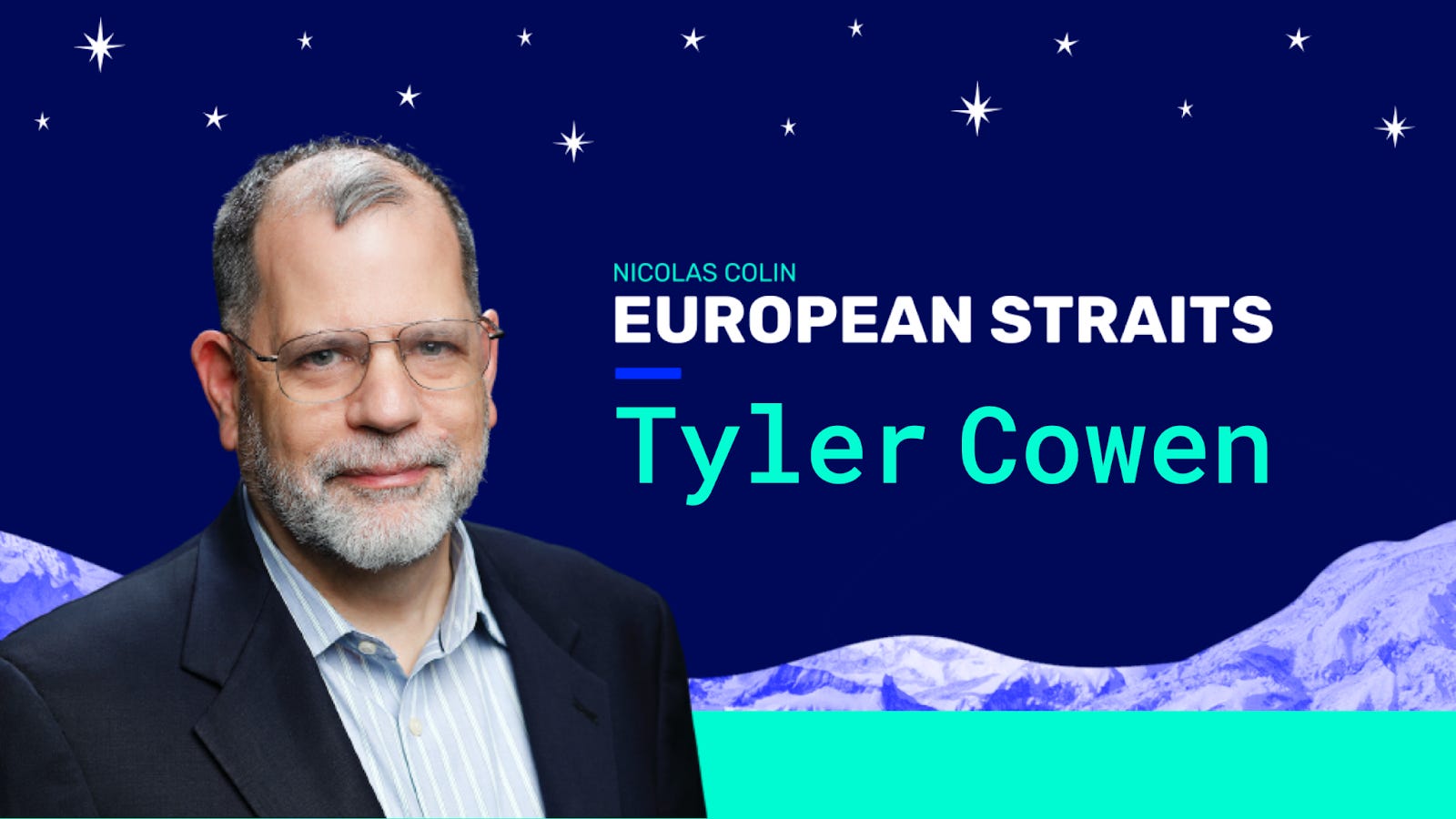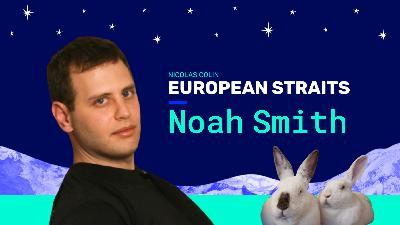Empathy at Work w/ Sophie Wade. Upcoming Long Read on Formula 1. Thumbs Up/Down.
Description
The Agenda 👇
* Laetitia spoke with author and speaker Sophie Wade about everything future of work 🎧
* A new “Long Read” format: first up on the list is Formula 1 🏎 (in progress)
* Thumbs up/down for last week, as well as recent news.
For the latest episode of the Building Bridges podcast, Laetitia interviewedSophie Wade, a speaker, writer (and podcaster) about the future of work, who is the author of the bookEmbracing Progress: Next Steps for the Future of Work. Here’s what Laetitia wrote on the Building Bridges website:
Sophie was born in England but now she lives and works in the US. She lived in many countries before that, therefore she has a multicultural approach to the subject that I was especially drawn to. She worked as a consultant with numerous executives and acquired a broad, deep knowledge of work-related issues, such as corporate culture, recruiting talent, leadership, transformation and now “hybrid work” and how to make it right. We talked about all these subjects that are part of my own daily research too. She is adamant: working with empathy is the future!
What’s the most unexpected work-related transformation brought about by the pandemic? What does “hybrid” look like? What are the challenges associated with it? How do we make the workplace more inclusive in this day and age? How should leadership evolve? How does one change their mindset to become “future proof”? And how much of all this talk about the future of work is determined by culture? What can intercultural comparisons teach us?
A few years ago she published this book titled Embracing Progress in which she presents empathy as the solution to a lot of the problems faced by organisations. When it comes to leadership, for example, the battle between ego and empathy is the single most decisive battle. It involves “shifting identity and choice”:
The “ego” of the emerging brand of leadership is not the “command and control” type of autocrat that this word has evoked in the past. Now, it’s more about empathy—creating an environment based on trust and respect—in order to engage the workforce and improve employee ego, stimulating self-awareness and self-worth. Ego here is also about the company’s identity, the values and purpose that the leadership aligns with.
When leaders understand the identity of their company and the workers that comprise it, leading people is more about engaging and guiding them. Values echoed by the leaders of a company offer a clear and more “natural” direction for the workforce to follow in their own actions, relating to everything from daily tasks to long-term goals and career planning.
👉 Listen to Laetitia’s conversation with Sophie Wade in the latest episode of the Building Bridges podcast using the player above 👆 or on Apple Podcasts or Spotify
As announced a few weeks ago, soon I will relaunch the long-form 10- or 11-point essays that many of you have enjoyed in the past. It will be occasional (I expect a monthly frequency on average, in addition to the weekly edition) and will cover a broad range of topics related to the Entrepreneurial Age, viewed from Europe.
The one I’m working on at the moment is “11 Notes on Formula 1” 🏎
Like almost everyone I know, I’ve been watching and enjoying Netflix’s Drive to Survive. It pushed me to go much deeper: going down the rabbit hole of F1 YouTube, listening to related podcasts, speaking a bit with experts I’m connected with, such as former podcast guest Toni Cowan-Brown, and realizing that a lot of what’s happening in the F1 world resonates with what we tech people have become accustomed to.
Below is the provisional list of notes I’m currently drafting:
* A manufacturer’s championship. You may primarily know about the drivers, but it’s the cars that make all the difference—and the various manufacturers taking part in the competition are required to design and build key parts of the car themselves.
* What about the drivers? Yes, they’re very popular, extremely competitive, and certainly accomplished athletes—but the harsh truth is that, contrary to other disciplines in motorsports (again, it’s a manufacturer’s championship), they’re only as good as their cars.
* The role of regulation. F1 provides the perfect illustration of the concept of a “neck-and-neck firm”—a business which, when confronted with pressure and challenges, doubles down on innovation. This is exactly how the best teams react to the FIA tightening regulations.
* An entrepreneurial ecosystem. Did you know that there is such a thing as Motorsport Valley? It’s located around Oxfordshire and the Midlands in England, and its very existence explains why Britain is the core of F1 (notwithstanding the occasional French term: grand prix, parc fermé).
* The importance of process knowledge. Usually when there’s such a thing as an entrepreneurial ecosystem, the pieces fit together thanks to people passing process knowledge from one to another. This is a very important feature in a manufacturing world such as F1’s.
* The importance of feedback loops. In an ecosystem in which process knowledge makes all the difference, it is absolutely critical for a firm to intensify said knowledge and circulate it as quickly as possible on the inside. This explains the downfall of certain teams recently.
* The dependence on the supply chain. There are many innovations that don’t endure in F1 because it’s impossible for the manufacturer that’s trying to race forward to force innovation on suppliers up the stream. As is often the case, the first-mover advantage is a myth!
* And then there’s Ferrari. It’s different in many respects, obviously because it’s located in Italy rather than the UK, but also because it’s strengthened by its position as a full-stack manufacturer that builds both the engine and the chassis—and its domestic base of supporters (the tifosi).
* The audience. F1 was a fringe discipline in the sporting world until a guy named Bernie Ecclestone forced it onto everyone’s small screen. It made the sport accessible to literally billions and radically changed the business equation. But what about the transition to social media?
* We need to talk about the US. Just like football (well, soccer), F1 is extremely popular all around the world, except for the US (whose audience seems to be more interested in disciplines such as NASCAR and IndyCar). Why is that? And can we expect changes in that regard?
The 11th note is always a reading list, of which I’m happy to share an extract here to tide you over (thanks to Toni for most of these links 🤗):
* Britain's Motorsport Valley – the home of Formula 1 (Lawrence Barretto, BBC, June 2013)
* Business lessons from Formula One (Alessandro Marino, ResearchGate, October 2015)
* The Top 50 F1 drivers of all time, regardless of what they were driving (Mike Hanlon, New Atlas, May 2016)
* Being a Formula 1 Tire Supplier Takes Far More Than You Ever Imagined (Máté Petrány, Road & Track, September 2016)
* Business isn't rocket science; it's formula 1 (Rafael Aldon, VenturesOne, March 2018)
* The game changed and they didn't: The true cause of Williams' decline (Dieter Rencken, RaceFans, March 2019)
* The Motorsport Valley®: The biggest hub of motor racing in the world (Williams Johnson, Medium, July 2019)
* <a href="https://medium.com/swlh



